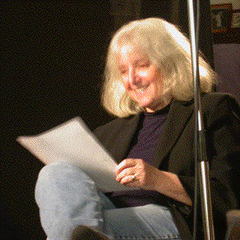A dissertation is: 1) a long paper, focused on a topic of interest; 2) a review of "the literature" or studies that have been done on this topic in the past; 3) a project or something you actively do, to give you "data" about some aspect of your topic; 4) a write up of what you have done, written so carefully that anyone can read your dissertation and replicate your study 5) a written analysis of what your data tells you, or your "results" 6) a final essay on what your results mean, in the big picture of your topic. If you think of your dissertation as a long paper that includes these six concrete sections, you'll have an overview of the project.
The dissertation project: The "doing" part of the dissertation
Students tend to get frightened by #3, that is by the very idea of actually doing something, that will give them data. In fact this is the easiest part of the dissertation, its just doing research. We all do research all the time. If we're planning to go out for dinner with some friends we make a list in our minds of possible restaurants to go to. We might look up on the Internet one or two that we haven't heard much about. We might ask the friends we're going out with what they feel like eating. In this way we collect some different types of data, and then, based on time, energy, interest, preferences, mood, we make a decision. To decide on the restaurant we've done some research. We do the same thing when we're figuring out what movie to go to, or where to go on vacation, or what classes to take in a semester in school. Doing research for the dissertation is no harder. It might involve more steps, it might take longer, but the process is basically the same.
Doing your project
This part of the dissertation is the easiest and often the most fun. To help you on your way in terms of figuring out what you are going to do, what question you are going to pose and what methods you are going to use to find answers to your questions, it is wise to have a group that you meet with regularly. This is what happens in research groups, and is called the "lab meeting." Everyone fills everyone else in on what they've done that week, what ideas they've had, what they've read, who they talked to, where they're at in the research process. Lab meetings are fun. There is no "right" or "wrong" in a brainstorming session. There is certainly nothing to be afraid of in this part of the dissertation process. What you are going to do doesn't need to be remarkably creative. It often is just another tiny step in finding something out about a topic. Students tend to think they have to do something that is earth shaking, when all they have to do is study one small piece of a big problem. The smaller the objective of the dissertation, the more doable it tends to be. In figuring out what you are going to do, make it small, make it concrete, something you can visualize, imagine in detail.
Think of Outcomes (What is the desired outcome?) Think of Next Action (What is the next action?)
Early in the dissertation its time to start thinking in terms of "Desired Outcome" and "Next Action." What is the desired outcome of your project: Its a completed dissertation (as the large outcome), and at each step of the way, you have many desired outcomes. If you consider the desired outcome at each step of the way, you are then able to break what you need to do down into very concrete and doable "next actions." Learning to think of desired outcomes and next actions will make the whole process move smoothly and continuously. Instead of freaking out about the enormity of the whole dissertation, you will begin to think in a much more concrete and doable framework. Each week you can ask yourself 'what is the desired outcome" for the week. From there you consider "what is the next action" to lead you to your desired outcome. Your brain is a great information processing and planning machine. Whether or not you deliberately try to consider the next actions, once you establish a desired outcome for a piece of the project, or for a period of time, you will automatically begin to consider what might be your next actions.
Subscribe to:
Post Comments (Atom)


No comments:
Post a Comment